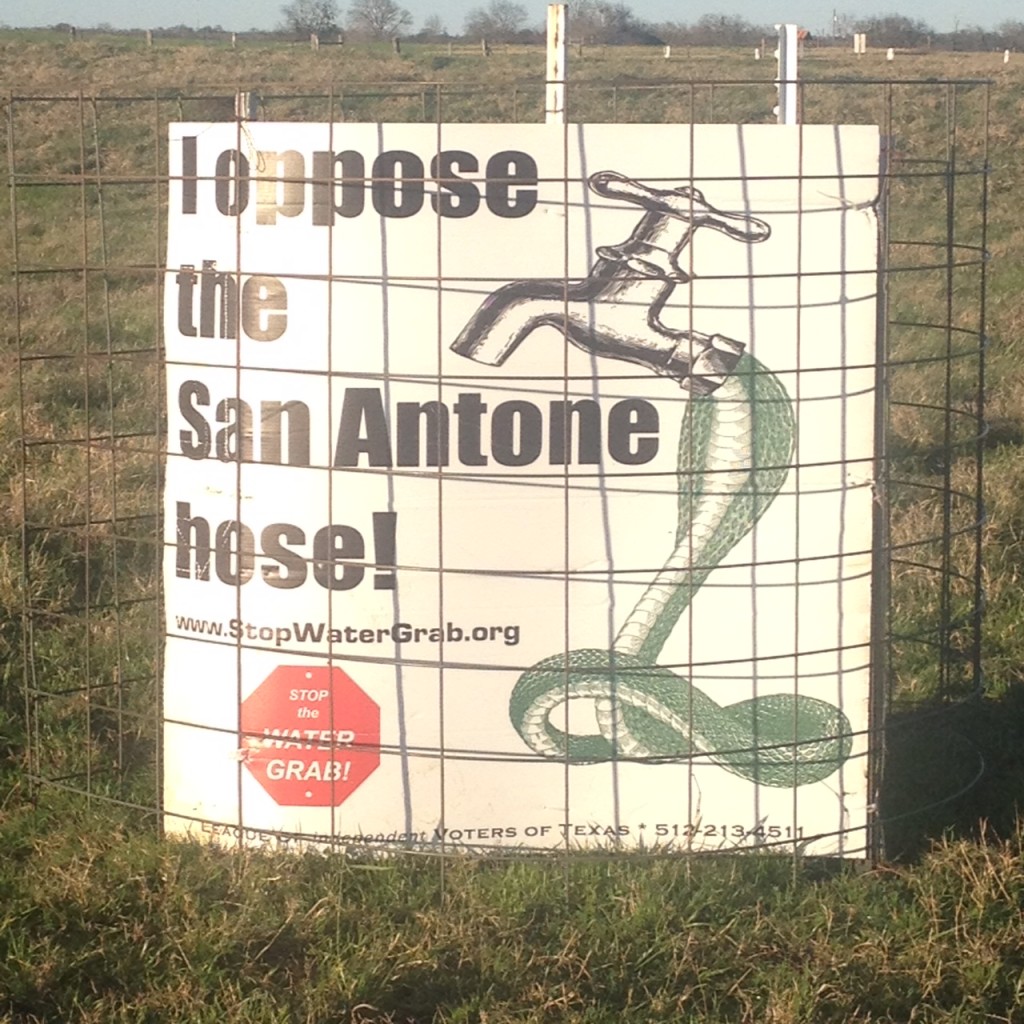Hello and welcome to the last Friday in February! Earlier this week, I was in College Station speaking along with my friend and colleague, Shannon Ferrell, at a program called Petroleum Production on Agricultural Lands in Texas: Managing Risks and Opportunities. We had a great turn out and want to welcome those of you joining us from that presentation! Now, on to the agricultural law news of the week, much of which is water related today.
* Breakdown of the Bragg verdict. As you read earlier this week, a jury has awarded $2.5 million to Medina County pecan farmers after the court found the Edwards Aquifer Authority’s denial of a permit to pump water for irrigation. Now, the specific details of the verdict are available. The verdict was reached by a 10-2 vote in Medina County District Court. The jury found the difference in value before and after the taking (basically the value of the land with the requested water versus the value of the land without the water) to be $1.37 million for the “Home Place” orchard, where the Braggs were given about half of the requested water and $1.18 million for the “D’Hanis” orchard where no water was allowed. When pre-judgment interest is calculated, the award will likely reach over $4 million. [View article here.]
* WOTUS challenge will remain at appellate court level. The WOTUS drama continues this week when the three-judge panel hearing the case in the Sixth Circuit Court of Appeals ruled it did have jurisdiction over the challenge. The question at hand was whether legal challenge to the WOTUS rule should be heard at the trial court level (federal district court) or at the appellate level (federal courts of appeals). Two of the three judges agreed that the appellate level jurisdiction was proper based upon precedent set in past cases, even though the statute appeared to indicate that district court jurisdiction was appropriate. At least for now, the case will continue on in the Sixth Circuit, where the court has already issued a nationwide stay on the application of the new rule. My friend Peggy Hall at Ohio State University wrote a great summary of the opinion here. [Read full opinions here.]
* Update on San Antonio Water Systems pipeline project. You all may remember the pipeline project, approved by the SAWS and San Antonio City Council to purchase water from a Spanish-based company, Abengoa, that would be pumped in Burleson County and shipped via pipeline to San Anotnio. Not long after the project was approved, Abengoa began pre-insolvency proceedings to avoid full bankruptcy filing. The company just announced it plans to sell 80% of its interest in the SAWS pipeline project to an unknown third party. [Read article here.] As I was driving through Burleson County last week, signs like the one below made clear the controversy is far from over.
* 2016 is the year of water law battles. Capital Press recently ran an interesting article projecting that several water battles will come to a head this year. The article discusses a number of legal issues that could impact the agriculture industry, including the Clean Water Act. For example, a California nursery was found to have violated the CWA when it failed to seek a permit before plowing a wetland area on its farm. [The LA Times wrote a great article on this case. Click here.] The Corps of Engineers say that the CWA requires a permit, and that the “ongoing farming operations” exception does not apply because the plow depth of 12″ constituted “deep ripping.” Another case in Wyoming involves a farmer whose stock pond allegedly discharged pollutants into a stream absent a required permit. Here, too, there is a CWA exception for stock ponds, but the government’s narrow interpretation makes the farmer’s actions fall outside that exception. [Read article here.]
* Agricultural Law CLE course set for Lubbock. The program brochure has just been released for the 10th Annual John Huffaker Agricultural Law CLE for attorneys. The course will be at the Texas Tech Law School in Lubbock May 26-27, 2016. There is a great variety of topics that will be covered from water law, food safety, WOTUS, environmental regulations, futures contracts and more. I will be speaking on statutory limited limited liability protections for Texas landowners. For more information, view the brochure here.
*FREE Big Data Webinar. For those of you interested in big data issues, we are helping to sponsor a free webinar, put on the the University of Maryland, featuring my friend, Terry Griffin. The webinar will be March 3, 2016 at 11:00 CST. The presentation will focus on economic issues related to big data. For more information, click here.













